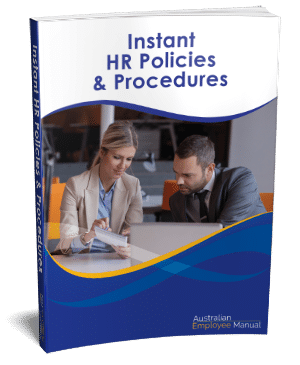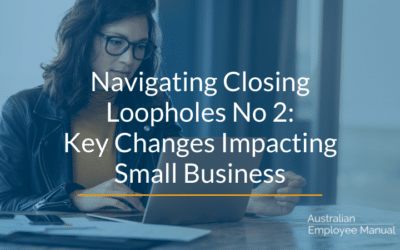The employment landscape in Australia is ever-evolving, and businesses need to stay updated with the latest developments. On the 22nd of June 2023, the Fair Work Legislation Amendment (Protecting Worker Entitlements) Bill 2023 was passed, requiring employers to review and revise their processes once again.
Enhancements to Parental Leave under the Protecting Worker Entitlements Bill
The Protecting Worker Entitlements Bill introduces significant improvements to parental leave provisions, aiming to grant employees easier access to unpaid parental leave and remove obstacles to sharing caring responsibilities.
The changes allow employees to take a larger portion of their unpaid parental leave flexibly, enabling them to combine workdays with periods of unpaid leave. This arrangement makes it more convenient for parents to maintain employment while caring for their young children.
These changes take effect from 1 July 2023.
It is designed to allow parents to explore a graduated return to work, or share caring responsibilities between parents. Here are the key changes:
- Expansion of flexible unpaid parental leave: Employees will now be able to take up to 100 days of flexible unpaid parental leave, as opposed to the current limit of 30 days. This flexibility empowers parents to return to work earlier while still having the option to access these days after their return (in agreement with their employer).
- Adjustable provision: The 100-day limit can now be modified through regulations, facilitating future increases in line with planned expansions to paid parental leave.
- Pre- and post-leave flexibility: Employees can now take flexible unpaid parental leave both before and after a continuous period of unpaid parental leave. Previously, taking a day of flexible unpaid parental leave would forfeit the remaining entitlement to continuous unpaid leave.
- Extended timeframe: Employees can commence unpaid parental leave at any point within 24 months following the birth or placement of their child.
- Simultaneous leave for employee couples: Couples will have the opportunity to take unpaid parental leave concurrently.
- Pre-birth flexibility: Pregnant employees can access flexible unpaid parental leave during the six weeks leading up to their expected due date, which is designed to protect the health of the pregnant employee.
- Individual extension of unpaid leave: Parents can request an extension to their period of unpaid parental leave, regardless of the amount of leave the other parent has taken. Consequently, each parent may be eligible for up to 24 months of unpaid parental leave.
- Terminology update: References to maternity leave throughout the Fair Work Act will be replaced with the term parental leave, reflecting a broader scope of inclusivity.
Changes to Superannuation under the Protecting Worker Entitlements Bill
Currently, employers are legally obligated to provide superannuation payments to employees in accordance with the Superannuation Guarantee Charge Act 1992. However, some employers have been actively avoiding this requirement by underpaying or not paying these entitlements.
To address this issue, the Protecting Worker Entitlements Bill introduces a provision for superannuation entitlements within the National Employment Standards (NES) from 1 January 2024.
This amendment strengthens employees’ ability to pursue unpaid superannuation as a rightful entitlement. It particularly benefits employees who are not covered by industry awards or enterprise agreements that already include a provision for superannuation entitlements.
Changes to Employee Authorised Deductions from Their Pay
The Protecting Worker Entitlements Bill introduces new provisions that expand the circumstances in which employees can authorise employers to make valid deductions from their payments, provided these deductions primarily benefit the employee.
Currently, employees are required to provide written authorisation for each variation in the amount of an authorised deduction (e.g., paying health insurance premiums directly from wages). Failure to provide a written variation promptly may result in the employee losing access to the service.
Under the new provisions, employees can provide a single authorisation that allows employers to make deductions for varying amounts. This flexibility accommodates changes in fees for specified deductions, eliminating the need for a new written authorisation each time the deduction amount varies.
These changes take effect from 30 December 2023.
Regulations will outline the specific wording for authorisations, indicating whether the deduction is for a fixed amount or if it may vary over time.
Other Changes
In addition to the these amendments, the Protecting Worker Entitlements Bill introduces several other changes:
- Clarifying the operation of the Fair Work Commission workplace determinations and enterprise agreements.
- Greater certainty for the work status of migrant workers, including temporary migrants, by addressing the interaction between the Fair Work Act and the Migration Act 1958. This ensures that migrant workers, even if they lack the right to work or be in Australia, are entitled to the same wages and benefits as other employees.
- Ensuring that casual employees working in the black coal mining industry are treated no less favourably than permanent employees in the accrual, reporting and payment of their long service leave entitlements under the Coal Mining Industry (Long Service Leave Funding) Scheme.
Action Steps for Employers
In light of these legislative changes, it is crucial for employers to review their existing policies and procedures concerning parental leave, employee deductions, and superannuation. This review will ensure that businesses remain fully compliant with the new legislation.
To assist with this process, we will be releasing updates to our HR Suite of products in the upcoming weeks. These updates will ensure that the provided wording aligns with the current legislation and promotes compliance. Our aim is to help businesses navigate these changes smoothly and implement the necessary adjustments effectively.
For more detailed information and guidance on the specific changes introduced by the Protecting Worker Entitlements Bill, we encourage employers to visit the Fair Work Ombudsman website.
As an employer, staying informed about the evolving employment landscape and actively adapting to legislative changes is vital.




